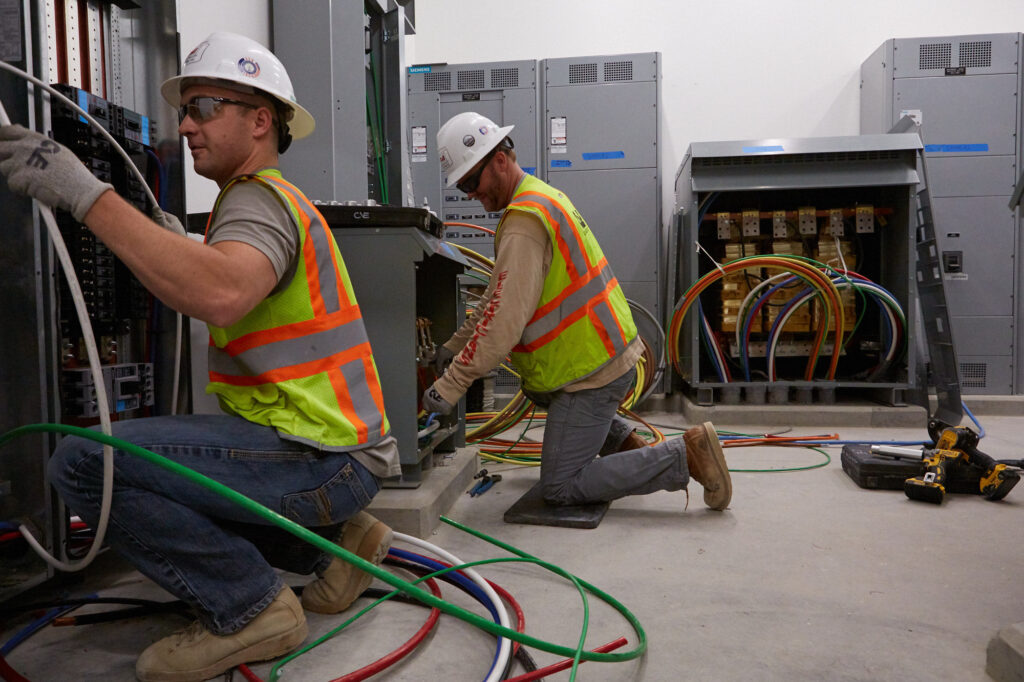
The Role of Industrial Electrical Contractors in Large-Scale Projects
When you’re tackling a large-scale industrial project, one key player often works behind the scenes to keep everything on track: the industrial electrical contractor. These experts are responsible for handling the complex electrical systems that power everything from massive manufacturing plants to energy facilities. Without them, your project wouldn’t just hit a snag—it’d come to a grinding halt.
What Exactly Do Industrial Electrical Contractors Do?
It’s easy to assume industrial electrical contractors are just there to install wiring or fix circuits, but their role is much bigger. These specialists handle everything from planning and installing large-scale electrical systems to maintaining and repairing them. They’re not just workers; they’re problem-solvers and strategists.
Think about the kind of projects they work on: factories, power stations, and high-tech processing facilities. These aren’t your average buildings; their electrical needs are immense. Contractors must design systems that handle enormous power loads while ensuring safety and compliance with strict industry standards. It’s not just about “getting the lights on.” They’re responsible for making sure every machine, conveyor belt, and automation system runs without a hitch.
They’re also the ones who troubleshoot when something goes wrong. Whether it’s a voltage drop, an overloaded circuit, or a piece of equipment refusing to cooperate, contractors figure out the issue and fix it.
Why Their Expertise Is Essential on Large-Scale Projects
Large projects aren’t just bigger versions of smaller ones—they’re exponentially more complex. There are so many moving parts, and one misstep in the electrical setup can ripple across the entire build. That’s where contractors prove their worth.
Their expertise ensures every detail is considered, from power distribution to safety protocols. They calculate electrical loads, plan for future expansion, and design systems that can handle both current and future demands. They don’t just think about today’s needs—they anticipate what’s coming in five or ten years.
Safety is another reason their expertise is irreplaceable. Industrial environments are often hazardous, with high-voltage equipment, heavy machinery, and potentially explosive materials. Contractors are trained to work in these environments, following strict safety guidelines to protect everyone on site.
How They Keep Your Project Running Smoothly
When you’re managing a large-scale project, there’s nothing worse than unexpected delays or complications. Industrial electrical contractors help you avoid these headaches by bringing organisation and precision to the electrical side of things.
Before a single wire is installed, contractors work on detailed plans. They map out power requirements, equipment placement, and how systems will connect. This planning phase is critical—cutting corners here can lead to costly mistakes later.
Once installation begins, their role is hands-on and proactive. They don’t just follow blueprints—they adapt to changes, solve problems, and keep things moving forward. Need to reconfigure something because another part of the project ran into an issue? They’ll figure out how to make it work without slowing the timeline.
And because they’re specialists, they also streamline communication. Instead of juggling multiple electricians or vendors, you get a single point of contact who oversees the entire electrical scope.
The Role of Innovation in Modern Industrial Projects
Gone are the days when industrial electrical systems were just about switches and wiring. Today, these systems are smarter, more efficient, and often incorporate cutting-edge technologies. Contractors are the ones bringing these innovations to life.
For example, many industrial projects now integrate renewable energy sources like solar or wind power. Contractors design and install systems that seamlessly connect these green technologies to the grid. This not only reduces environmental impact but also helps businesses save on energy costs.
Automation is another game-changer. Factories and facilities are becoming increasingly reliant on automated systems to improve efficiency and reduce downtime. Contractors install and program the electrical components that make automation possible, such as sensors, controllers, and robotics.
Energy efficiency is also a top priority. Contractors often recommend solutions like LED lighting, energy-efficient motors, and advanced monitoring systems to cut down on waste. These upgrades might seem small, but over time, they can lead to massive savings.
How to Choose the Right Contractor
Not all contractors are created equal, and picking the wrong one can cause delays, added costs, or even safety issues. So, how do you find the right fit for your project?
Start by checking their experience. Have they worked on projects of a similar scale and complexity? A contractor who’s handled a small office build might not have the expertise for a massive industrial site.
Next, look for certifications and compliance. Industrial electrical work is heavily regulated, so you need someone who understands the standards and knows how to meet them.
Don’t overlook communication, either. The best contractors don’t just do the work—they collaborate with your team, keeping you updated and involved. Clear communication is key to avoiding misunderstandings and ensuring your vision is executed perfectly.
Why Their Role Is More Than Just Technical
Sure, industrial electrical contractors are highly skilled technicians, but their role goes beyond wires and circuits. They’re partners in your project, bringing expertise, problem-solving skills, and a commitment to getting things done right.
When you have the right contractor on your side, you don’t just get a working electrical system—you get peace of mind.